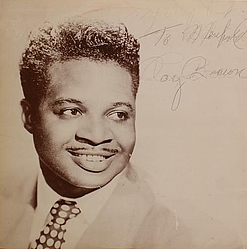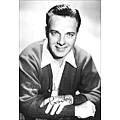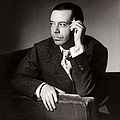Биография Roy Brown
Roy James Brown (September 10, 1925 — May 25, 1981) was an American R&B singer, songwriter and musician, who had an influence on the early development of rock and roll music. His «Good Rocking Tonight» was covered by Wynonie Harris, Elvis Presley, Ricky Nelson, Jerry Lee Lewis, Pat Boone, and the rock group Montrose. In addition, his melismatical pleading, vocal style influenced B.B. King, Bobby Bland, Jackie Wilson and Little Richard.
Brown was born in New Orleans, Louisiana, United States. As with many R&B singers, he started singing gospel music in the church. His mother was an accomplished singer and church organist. After a move to Los Angeles, California some time in the 1940s, and a brief period spent as a professional boxer in the welterweight category, he won a singing contest in 1945 at the Million Dollar Theater covering «There’s No You», originally recorded by Bing Crosby. In 1946, Brown moved to Galveston, Texas, where he sang in Joe Coleman’s group performing mostly songs from the Hit Parade, in a club called the Club Granada. His numbers included a song he wrote entitled «Good Rocking Tonight». After being rejected by the Armed Forces because of flat feet, he secured his first major job in a Shreveport, Louisiana club singing mostly pop ballads such as «Stardust» and «Blue Hawaii.» The owner of Bill Riley’s Palace Park hired him, as Brown told a Blues Unlimited interviewer, because of his appeal as «a Negro who sounds white.» It was at the Palace Park that Brown started developing a blues repertoire, learning contemporary R&B tunes such as «Jelly Jelly». He returned to New Orleans in 1947, where he performed at The Dew Drop Inn.
Brown was a big fan of blues singer Wynonie Harris, and Brown tried but failed to interest Harris in listening to «Good Rocking Tonight.» Dejected, Brown approached another blues singer, Cecil Gant. Brown introduced his song, and Gant had Brown to sing it over the telephone to the president of De Luxe Records, Jules Braun, reportedly at 4:00 in the morning. Brown was signed to a recording contract immediately. Brown recorded the song in a jump blues style with a swing beat. It was released in 1948 and reached #13 on the US Billboard R&B chart. Ironically, Wynonie Harris covered it and hit the top of Billboard’s R&B chart later in 1948. Presley also covered the song for Sun Records in 1954; later re-released on RCA Victor when his recording contract was sold to that record label in 1956.
Brown continued to make his mark on the R&B charts, scoring 14 hits from mid-1948 to late 1951 with De Luxe, including «Hard Luck Blues» (his biggest seller in 1950), «Love Don’t Love Nobody», «Rockin’ at Midnight,» «Boogie at Midnight,» «Miss Fanny Brown,» and «Cadillac Baby», making him the undisputed king of R&B for those three years.
After his popularity peaked, Brown began to experience a lull in his career. Doo-wop was quickly gaining strides as the standard sound of R&B in the early to mid 1950s. The decline of his fortunes coincided with his successfully winning a lawsuit against King Records for unpaid royalties in 1952, one of the few African American musicians to do so in the 1950s. This has led some, such as author Nick Tosches (in his book Unsung Heroes of Rock ‘n’ Roll, which contained a chapter on Brown) to believe that Brown may have been blacklisted. Brown’s misfortunes also included prison time for tax evasion. When his popularity ebbed in the rock and roll era, he tried teen-slanted songs like «School Bell Rock», but had little success and subsequently went into semi-retirement.
Brown had a brief comeback through Imperial Records in 1957. Work with Dave Bartholomew, Brown returned to the charts with the original version of «Let the Four Winds Blow» (co-written by Fats Domino), which would become a hit later for Domino.
He returned to King Records where his popularity ground down to a low by 1959, but he sporadically managed to find work and do some recording through the 1960s, making appearances where ever he was wanted. To supplement his income, Brown sold the rights to «Good Rocking Tonight.»[citation needed] He also worked as an encyclopedia salesman.
In 1970, Brown closed The Johnny Otis Show at the Monterey Jazz Festival. As a result of the crowd’s positive reaction, he recorded «Love for Sale», which became a hit for Mercury Records.
In the late 1970s a compilation album of his old work brought about a minor revival of interest. In 1978 he had a successful tour in Scandinavia following the releases of Laughing But Crying and Good Rocking Tonight. Shortly before his death he performed at the Whisky A Go-Go in West Hollywood, California and headlined the New Orleans Jazz and Heritage Festival in 1981.
Brown died of a heart attack, at Pacoima Lutheran Memorial Hospital, near his home in the San Fernando Valley on May 25, 1981. He was 55 years old. The Reverend Johnny Otis conducted the funeral. He was posthumously inducted into the Blues Hall of Fame the same year.
Тексты песен Roy Brown
| Title | |
|---|---|
| 1 | Mighty, Mighty Man |
| 2 | Let The Four Winds Blow |
| 3 | Butcher Pete |
| 4 | Monon |
| 5 | Oubao Moin |
| 6 | Sal A Caminar |
| 7 | Cadillac Baby |
Оставить комментарий
Что вы думаете об исполнителе Roy Brown? Напишите ваш комментарий.
Альбомы Roy Brown
| Title | Release | ||
|---|---|---|---|
| 1 | Good Rocking Tonight: The Best of Roy Brown | ||
| 2 | The Puerto Rican Freedom Album, Vol. 1 | ||
| 3 | Rockin' At Midnight | ||
| 4 | Colección |
Похожие исполнители
- Cole PorterBlues/Jazz
- Danny KayeJazz
- The Ink SpotsJazz
- Kay KyserJazz
- Amos MilburnBlues
- Jerry KellerJazz/Pop




















